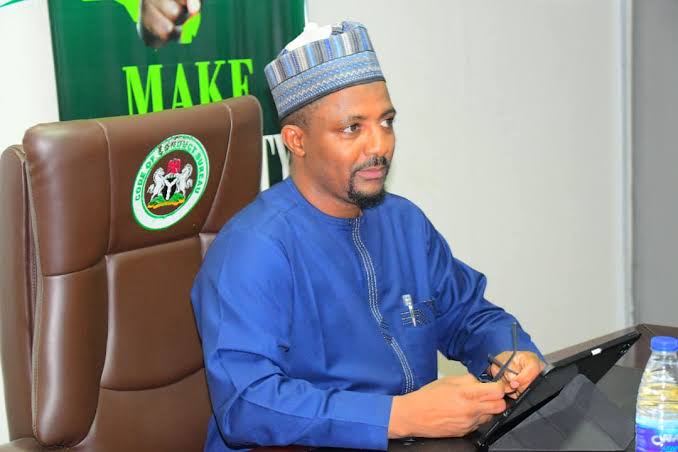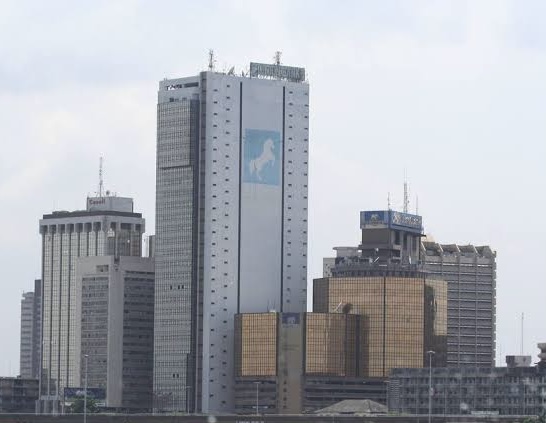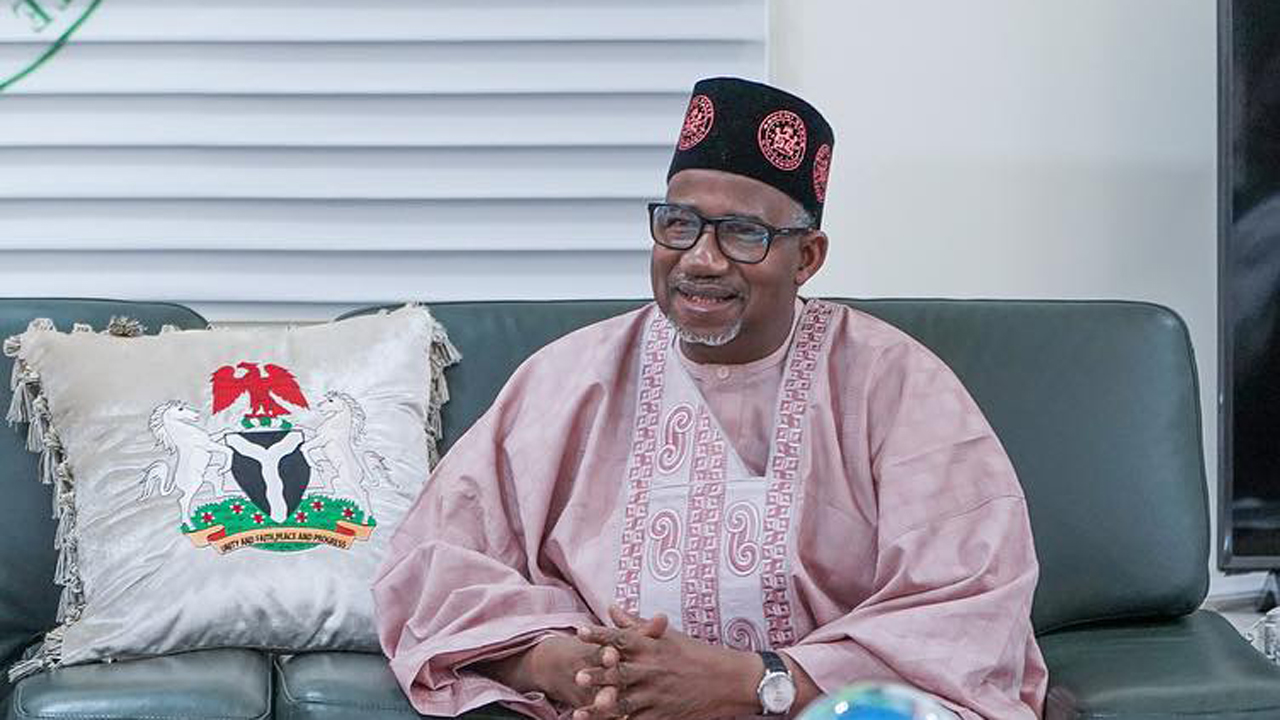
In this exclusive interview, HR strategist Olumuyiwa Atitebi discusses the biggest shifts in Nigeria’s human resources sector, from employee engagement and workplace culture to the role of data and artificial intelligence in shaping the future of work.
Olumuyiwa Atitebi is a seasoned strategic HR leader with more than two decades of multi-industry experience spanning education, banking, insurance, consulting, and international development. Currently a human resources consultant with the World Bank and Principal at Outsource Africa, he brings a people-first approach to HR strategy, talent acquisition, learning and development, and advisory services. In this interview with Anchor News Online, Atitebi shares insights on the HR landscape in Nigeria, workplace culture and challenges, the role of employee data, organisational investment in human capital, and how HR functions are evolving in the age of artificial intelligence.
How would you characterise the most significant shifts you’ve observed in Nigeria’s HR landscape over the past decade?
So, let’s take it from the broader global conversation and then narrow it down to our local implications. The HR space, over time, started out as an administrative structure where things were done from an administrative perspective. There weren’t many engagements between the leadership of organisations and the followership. Later it became a bit more operational, and there was a lot of asking for data, even though the bulk of the data weren’t really doing much then. We hired people, got them to bring guarantors, we started to do HMOs, pensions and all of those. In very recent times, things have become a lot more strategic and we now have employee engagement, gathering insightful data around the employee, and customer centricity has also come into it. It’s gone beyond organisations that want this type of staff, look for that type of staff, get them on board and let them start doing the work. Now it has become: we’ve gotten the staff, what do they expect from us as an organisation? A lot of customer experience has come into that space and we’re getting real value for it.
Bringing it to the local implication, Nigeria does not fall behind when it comes to human resources in any field. So, you find that there is scaling up in terms of the competency required within the HR space. I would say that, in terms of what is required to be a forward-thinking sector and workspace, we’re not doing badly. There’s a lot more we can offer in terms of managing culture and employee engagement, but overall, we’re really not doing badly. There are still issues to be addressed, though.
Despite the positive changes that have happened over the years, what are the biggest challenges that we currently face in fostering a thriving workplace in Nigerian organisations, and how can HR leaders effectively champion positive change?
In terms of human behaviour and dealing with humans generally, there’s a lot to learn, a lot to take in, and a lot to manage. Given all the parts of the conversation that are involved — emotions, performance, and mental health — all of these largely influence what goes on within the workplace. But as much as possible, organisations should look to build a thriving workplace that supports performance. Everybody is looking to be professional, to build trust, and to be customer-centric. But organisations must understand that these things are executed by employees and the workforce.
To that extent, we should build a thriving work culture that allows people to become what they want to become. Empower your employees, pay attention to them, and ensure that you build an environment where people can thrive. There will be issues because we’re humans dealing with emotions and people from different backgrounds, but we should ensure that we build such an organisation where those issues can be addressed without drawing too much blood.
Are you saying that human relations within the workplace is the biggest challenge in fostering a thriving workplace culture?
Yes. We come from different organisations, so it’s important that we are able to take advantage of our differences to enrich our organisation. There are also financial constraints — many organisations would probably like to pay more than they currently do, but they are limited by the resources available to them. There are also skill gaps, and helping to scale up people for what they are being hired for is a question of available resources. The challenges include human relations, skills gaps, resources — both financial and human — and also maintaining work culture.
You designed and delivered a World Bank-funded workplace behaviour training. Why is this aspect of workplace culture vital for productivity and overall business health in Nigeria?
Humans have certain expectations and behaviours that distinguish us among ourselves, and it’s important that we coordinate ourselves in such a manner that allows for productivity within the workplace. A healthy work environment allows people to bring their best. In some of the projects that I’ve supported in the past, we’ve had conversations around bullying in the workplace and all sorts of issues. We need to be able to de-escalate some of those issues and ensure that we have an environment that is as peaceful as possible, allows people to thrive, and allows for productivity.
Recently, PENCOM said civil servants are lacking 21st-century skills and that the country is currently facing a significant skill gap. How can HR professionals proactively address these gaps within organisations rather than just reacting to them?
A vital value chain within the HR space is learning and development. And very importantly, before we begin to demand certain excellence, competency levels and skills from our employees, we can’t assume that those things will occur naturally. There’s a place for personal development, but if I see that in my current role, there’s nothing challenging me to be more than what I’m giving to that organisation, then maybe there’s no emphasis on personal development for me. However, if an organisation is going to demand certain skill sets from employees, then it also has a responsibility to ensure that it provides a platform where they can get those skill sets. We can argue for and against that, but what happens if the employee really doesn’t care about personal development?
Honestly, it’s not entirely the fault of the workforce. In some instances, we’ve also not put procedures in place to ensure that people deliver their best. I remember a session I had in Ethiopia, where they said one of the most structured and most advanced civil services in Africa is in Nigeria. Very interesting. I think even till now, Ethiopia still has an exchange programme with the Nigerian civil service where people come from Ethiopia to learn. The things we are not seeing, maybe some people outside Nigeria are seeing them.
I’m not encouraging mediocrity, I’m saying that in the midst of all the things we complain about and say are not working — that is still the standard for some people. In fact, some of the African-based developmental agencies that have their business outside Nigeria still look for Nigerian resources. But all that said, we acknowledge that we can have an environment that is less bureaucratic and more productive. Within the public and private sector, we need to place a lot of emphasis on learning and development. There’s also the attitude when you send people out on these programmes. They think that it’s just a work-free day and they should relax. But the employees should be able to give back to the organisations that sent them for these learning and development programmes.
The Ministry of Education recently partnered with Amazon for free digital skills training. How do you think HR leaders within companies can leverage national initiatives to build stronger talents within their existing workforce?
One of the things we’ve suffered the most post-COVID is the japa syndrome. It’s not new to Nigeria. There’s just a sudden rise in demand for human resources. The problem with the West, Europe, the Americas, and others is that they don’t have the natural succession of replacing their population. Some of them have a negative population index and so the fastest way to replenish their own population is through immigration programmes. This has affected us, but we still have a lot of relevant human resources within the Nigerian space.
There’s a correlation between how you reward people and how you also get the best out of them. So, organisations should look to engage employees appropriately. I know that there might be limitations to what employers can pay, but they must ensure that it is competitive enough. I also encourage people to take on projects that cause them to stretch in their competency levels.
Another thing that is very important is that organisations must also look into mentoring. A lot of people within leadership seem to have bouts of experience, and organisations should find a way to ensure that knowledge is recycled back through either direct or indirect mentoring. Yes, there is organisational structure, but it shouldn’t just remain a structure to manage performance and productivity. It should also be a structure that people can learn from. Whether consciously or unconsciously, we must find such opportunities to ensure that our leadership structure doesn’t just remain a structure that manages performance, but also mentors people, helps them to grow, and helps the organisation to thrive.
What skills will be crucial for HR professionals in this era of artificial intelligence, and how do you see technology reshaping HR functions?
It is generally assumed that AI will take people’s jobs. If anything, I think AI has only come to enable people to do a lot more, faster. What is important is that everybody learns a thing or two within that space that helps them to do their work better. When we talk about the adoption of AI and technological capabilities, don’t forget that the human in human resources is still emotionally linked. It’s still linked to the empathy required for managing people, expectations, and conflict. So, to that extent, everybody needs to be familiar with the use of artificial intelligence.
On the soft skills and people management side, HR needs negotiation skills, conflict management, problem solving, leadership qualities, empathy, and emotional intelligence. All of these, combined with leveraging technology, can help to make the workplace a decent place for everyone.
The CIPM has urged HR to take a leading role in cyber security and regulatory compliance. How can HR departments effectively become the vault for sensitive organisational and employee data?
When you collect people’s data, you’re also responsible for that data. Data might look like just ordinary figures, ordinary words, ordinary numbers, but it does say a lot. So it’s important that data is stored properly, securely, and that only people with authorised access should have access to it. Also, from a compliance perspective, you want to be sure that your data has integrity, and that you understand certain requirements of the law, which the data gathering process and its use must follow.
But beyond all of that, from a business continuity perspective, there’s so much you can do with data. It is commonly said that data is the new oil. In the same way within the HR space, data has become very important. With data, you’re able to predict the outcome of your organisation. There’s a thriving branch of HR now, which is HR analytics — and it’s about what your data is saying. Your data is able to tell you what is going on in your organisation, and if you understand that, it means you can predict the outcome. For example, if you started out the year with 250 staff and ended the year with 200, it means 20% of your workforce has gone. It’s important that you know what happened to those 50. Because if you don’t understand the problem quickly enough to resolve or address it, the outcome will be the same in the coming year.
Usually when you start a conversation about workplace behaviour, it seems like it is speaking only to organisational leadership. But there’s a balance there. We should all be evenly invested. Whether you are in leadership or in followership, it is our culture, it is our organisation. We are building a place where we want everybody to thrive.
You can address nepotism, bullying and so on from a leadership perspective, but you must also speak to entitlement from employees. Employees sometimes feel that once they are not getting what they want, leadership must be bad. But sometimes you need to look at where the organisation is, what it can do at that time, and how things can get better over time. A lot of this can be drawn out of the data collected from employees.
On a final note, what advice would you give to Nigerian organisations regarding their investment in human capital?
The greatest investment organisations can make is in their employees. It’s important that we do as much as we can to keep our people. Almost every organisation is looking for ‘ready-made’ employees because it costs quite a lot to develop people and put in place a learning and development structure where staff can learn and be rewarded. But understand that you are not doing your employees a favour by investing in them — paying a competitive salary, ensuring that employee engagement is properly done, and investing in their learning and development. All things being equal, if organisations do it right, they will reap the benefits. You’ll get your return on investment.
If your people are struggling to get the work done, and you improve them, it also means that you’ve scaled up productivity and improved the outcomes of your goals. At the end of the day, it’s a revolving circle that rewards everyone. You also realise that it actually costs more to hire new employees than to retain existing ones. Once you hire new employees, you need to fit them into the culture of your organisation and shape them into the kind of employees you want. Whereas, if you retain your staff, everyone — including the organisation — is growing together. So, the greatest investment you can make in any organisation is in people.
And lastly, to balance that out, employees should not get developed by an organisation only to ‘take flight’. It is only just that an organisation should reap the outcome of the investment it has made in you. People have different goals and expectations for themselves, but as employees, let’s be honest with our organisations about our plans to leave or relocate. Let’s be honest enough, either by pulling back from letting the organisation put in that investment, or carefully suggesting that somebody else should enjoy the benefit of those investments. If organisations lose some of their employees, it’s part of doing business. But they shouldn’t shy away from making those investments that will empower their staff, cultivate a thriving workforce, and boost productivity.












